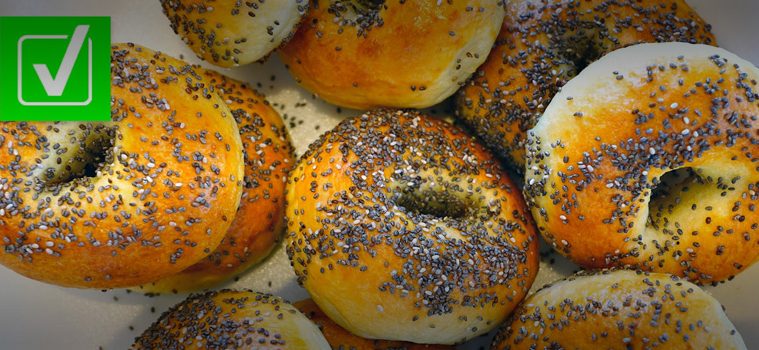BEWARE OF BAGELS –
June 25, 2021 – Poppy seeds have provided drug testing challenges for decades. That’s because opium is extracted from poppy plants, according to the United States Drug Enforcement Administration (DEA).
“The opium poppy is the key source for many narcotics, including morphine, codeine and heroin,” the DEA says.
According to Winchester Hospital in Massachusetts, eating a poppy seed bagel can produce an opiate level of 250 nanograms per milliliter (ng/mL). Consuming poppy seeds could lead to even higher levels. Up until late the 1990s, 250 ng/mL would nearly result in a positive test.
In 1998, the U.S. Department of Health and Human Services (HHS) updated its guidelines to increase the morphine and codeine threshold levels from 300 ng/mL to 2,000 ng/mL for federal workplace drug tests. In its explanation for raising the threshold, HHS said an analysis of urine specimens found 87% of opiate positive tests were verified as negatives.
“The reasons given for reporting negative results included the use of prescription medications, poppy seed consumption, no clinical evidence of heroin use, or other unspecified reason,” HHS said.
In a 2010 medical review officer manual for federal agency workplace drug testing programs, the Substance Abuse and Mental Health Services Administration (SAMHSA) still identified poppy seeds as a challenge when testing for opiates.
“Eating a normal dietary amount of poppy seeds can cause a urine specimen to test positive for morphine and codeine,” SAMHSA said. “The concentration of morphine can be substantial, with usually very low concentrations or no detectable codeine. In many instances, a donor will not know that poppy seeds can cause a positive test or realize that he or she had eaten poppy seeds around the time the urine was collected.”
The Federal Bureau of Prisons requires inmates who leave on furlough to agree not to consume poppy seeds or foods containing poppy seeds.



